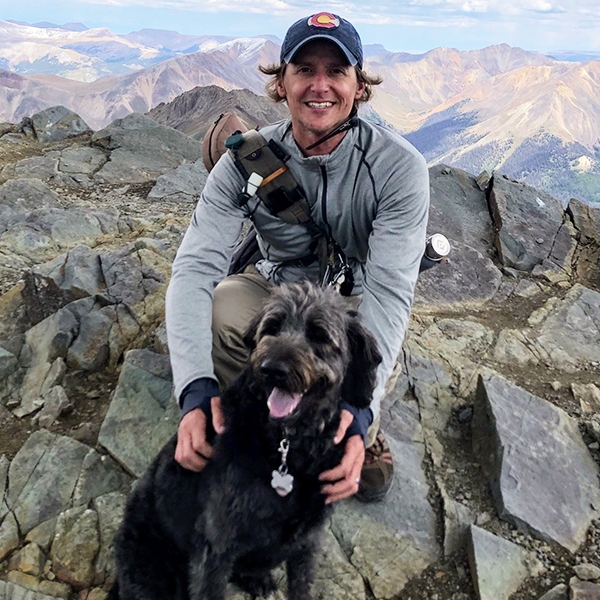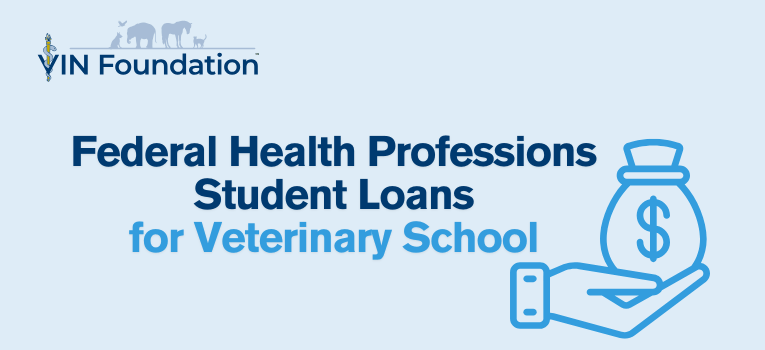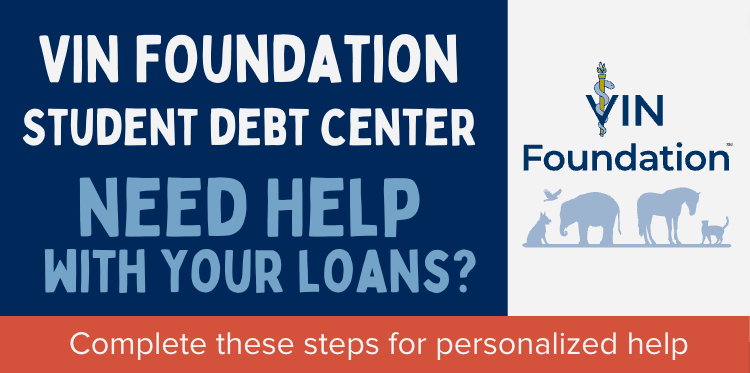A number of U.S. veterinary schools provide access to the Health Professions Student Loan (HPSL), a federal loan program with favorable terms for students pursuing careers in healthcare, including veterinary medicine. Oftentimes, veterinary students are not aware of the availability of HSPL. While an exhaustive official list of all participating veterinary schools is not currently available, we will attempt to build one here. We will start with the schools that we know offer HPSL. If your school also does, please send an email to [email protected], and we will expand the list.
Veterinary schools offering the Health Professions Student Loans
- Colorado State University College of Veterinary Medicine & Biomedical Sciences
- Cornell University College of Veterinary Medicine
- Michigan State University College of Veterinary Medicine
- Oklahoma State University College of Veterinary Medicine
- Purdue University School of Veterinary Medicine
- Texas A&M University College of Veterinary Medicine
- The Ohio State University College of Veterinary Medicine
- Tufts University Cummings School of Veterinary Medicine
- University of Arizona College of Veterinary Medicine
- University of California, Davis School of Veterinary Medicine
- University of Florida College of Veterinary Medicine
- University of Illinois College of Veterinary Medicine
- University of Missouri College of Veterinary Medicine
- University of Pennsylvania School of Veterinary Medicine
- Washington State University College of Veterinary Medicine
- Virginia-Maryland Regional College of Veterinary Medicine
Expert Tip: HPSL Availability Varies
The availability of HPSL funds can vary by academic year and is dependent on federal funding allocations to each school. Therefore, prospective and current veterinary students are encouraged to verify the availability of this loan directly with the financial aid office for their current or chosen school.
Understanding the Health Professions Student Loan
The HPSL is a need-based federal loan program administered by the U.S. Department of Health and Human Services through participating educational programs. A key feature of the HPSL is its low, fixed interest rate, which is currently 5%. Furthermore, interest does not accrue on HPSL while the student is enrolled in school at least half-time or during a 12-month grace period after graduation.
The HPSL can be an important part of paying for a veterinary education. Those who are eligible can use them to reduce their reliance on more expensive federal Direct Loans that accrue interest during school. HPSL will also become a very important loan for reducing or eliminating the need for private loans when new borrowing limits begin for veterinary students starting programs after July 1, 2026.
HPSL can be consolidated into a Direct Consolidation loan after school, thus eligible for income-driven repayment and Public Service Loan Forgiveness.
Health Professions Student Loan Eligibility and Application
To be considered for an HPSL, students must typically meet the following criteria:
- Be a U.S. citizen or eligible non-citizen.
- Be enrolled or accepted for enrollment in a participating veterinary school.
- Demonstrate financial need.
There is usually a separate HPSL application, in addition to the Free Application for Federal Student Aid (FAFSA). While graduate and professional school students (i.e., veterinary students) are considered independent for financial aid eligibility, the HPSL requires schools to consider parents’ financial information in determining HPSL eligibility.
If your school offers HPSL, there is no reason not to apply. You never know how much HPSL will be available and how many others will apply. There is a good chance you can receive some amount of HPSL if you apply. There is no chance of receiving the HPSL if you do not apply.
Current and prospective veterinary students interested in the Health Professions Student Loan should contact the financial aid office of their respective schools for the most accurate and up-to-date information on availability, application procedures, and deadlines.
Need student loan help?
Have more questions? Post a comment below or email [email protected].
We’re here to help!

Dr. Tony Bartels graduated in 2012 from the Colorado State University combined MBA/DVM program and is an employee of the Veterinary Information Network (VIN) and a VIN Foundation Board member. He and his wife have more than $400,000 in veterinary-school debt that they manage using federal income-driven repayment plans. By necessity (and now obsession), his professional activities include researching and speaking on veterinary-student debt, providing guidance to colleagues on loan-repayment strategies and contributing to VIN Foundation initiatives.



